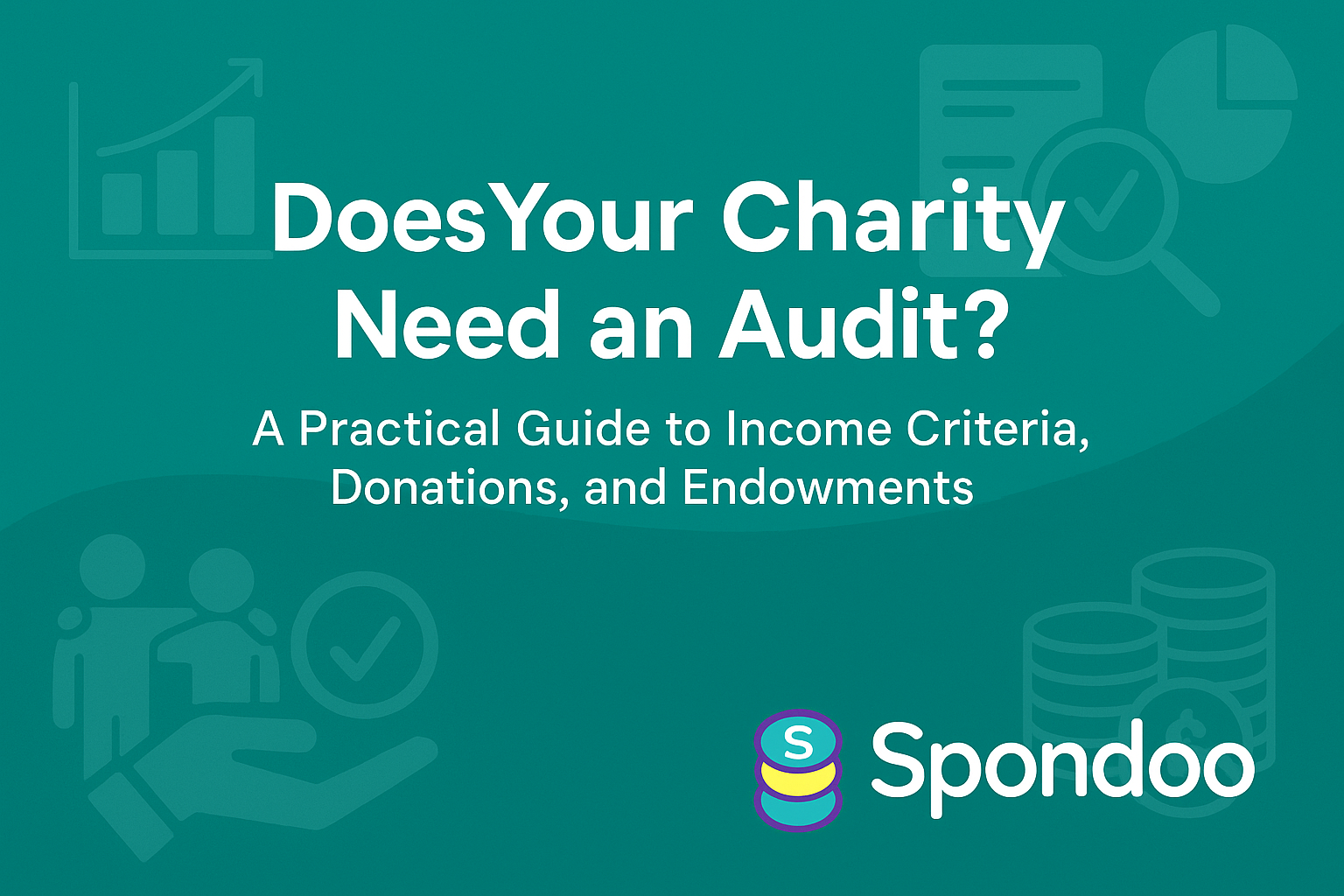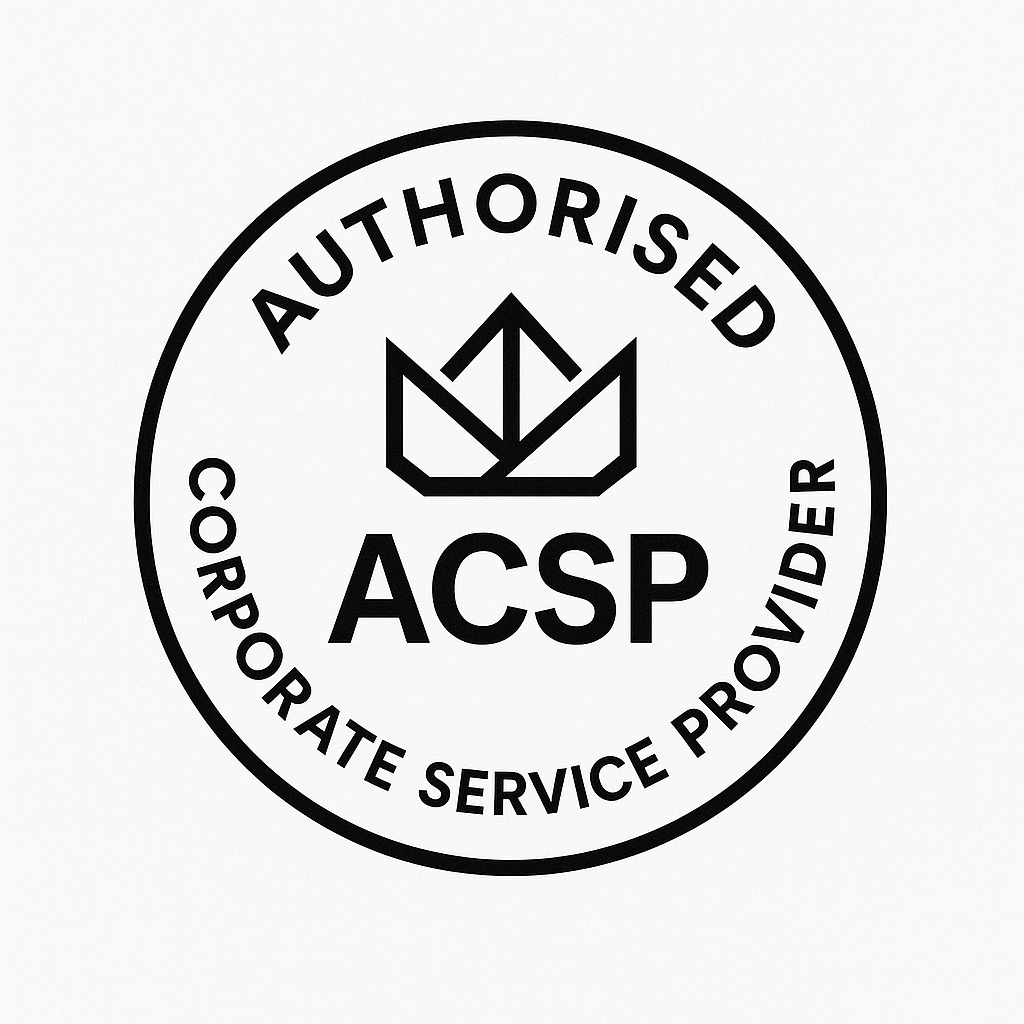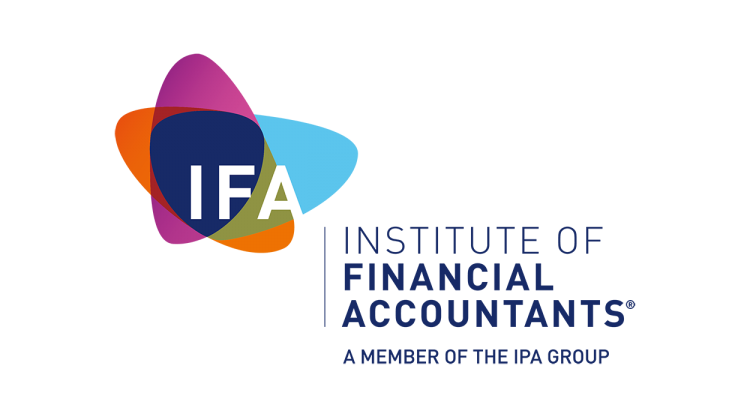Introduction
For many UK charities, one of the most common questions is: “Do we need a statutory audit this year?” The answer often depends on turnover, the type of income received, and how funds are classified.
At Spondoo, we help charities and not-for-profits navigate these rules, ensuring compliance with the Charity Commission and Companies House while avoiding unnecessary audit costs. This guide breaks down the income criteria for donations, grants, and endowments, with real-world examples to help you apply the rules to your organisation.
Audit Thresholds for UK Charities
In the UK, most charities require an independent examination rather than a full statutory audit — unless certain thresholds are crossed.
A charity must have a statutory audit if any of the following apply:
Annual income exceeds £1,000,000.
Gross assets exceed £3.26 million and income is over £250,000.
The charity’s governing documents or funders specifically require an audit.
Understanding what counts as income is crucial in calculating whether these thresholds apply.
Income Criteria: What to Include and Exclude
Not all income is treated equally. Here’s the general rule of thumb:
✅ Include in turnover:
Unrestricted donations
Restricted grants (used for specific projects but not endowment)
Trading income (sales, services, ticket revenue, etc.)
Investment income
❌ Exclude from turnover:
This distinction makes a big difference in practice, as shown in the examples below.
Here are some hypotheticals to show how Spondoo or your clients should assess whether an audit is required, based on turnover:
Example 1: Small Charity
Unrestricted donations: £400,000
Restricted grants: £300,000 (must be used for specific projects, but not permanent endowment)
Investment income: £50,000
Capital donations to an endowment (must be preserved): £200,000
Turnover calculation:
Include: 400,000 + 300,000 + 50,000 = £750,000
Exclude: 200,000 endowment capital
Result: Turnover = £750,000.
Since £750,000 < £1,000,000, and assuming other thresholds (assets etc.) aren't breached, this charity would be eligible for audit exemption, meaning an independent examination might suffice instead of a full statutory audit.
Example 2: Company with Mixed Income
Revenue from sales / services: £950,000
Grants / subsidies (restricted): £100,000
Investment income: £10,000
Turnover: 950,000 + 100,000 + 10,000 = £1,060,000
Result: Turnover = £1,060,000.
Since this turnover exceeds the £1m threshold, the company (if charity or other entity subject to similar thresholds) would require a statutory audit under the rules.
How Spondoo Supports Charities and Clients
Here’s how Spondoo can integrate this in your advisory and accounting practice:
Identify sources of income for each client clearly: distinguish restricted vs unrestricted funds, capital vs income.
Track endowment capital separately in the accounts so you can exclude permanently restricted amounts clearly.
Prepare a turnover-threshold check as part of year-end or budgeting: run the numbers (as above) to see if turnover exceeds thresholds.
Document the calculation: produce a note/memo for the file which shows what has been included, what has been excluded, and the resulting turnover figure.
Review governing documents & funders’ requirements: sometimes, even if turnover is below the statutory threshold, the governing document, or a funder, may demand a full audit.
Timely advice: advise clients as early as possible if they are approaching thresholds, to allow budgeting for audit fees if needed.
Why This Matters: For Spondoo & Clients
Prevent unexpected audit costs – Knowing audit requirements early helps with financial planning..
Avoid penalties or issues with regulators – Non-compliance can trigger regulatory issues with the Charity Commission or Companies House.
Protect reputation – Transparent and accurate reporting strengthens donor and stakeholder confidence.
- Support fundraising: Ensure financial statements are properly prepared; help in fundraising or grant applications (many funders ask for audited accounts).
Maintain Spondoo’s reputation for transparent and accurate advice.
Conclusion
Determining whether your charity needs an audit comes down to correctly applying income rules, particularly distinguishing between unrestricted funds, restricted grants, and permanent endowments.
By running clear turnover calculations and staying ahead of thresholds, you can avoid surprises and maintain compliance. At Spondoo, our team ensures charities and not-for-profits have the right processes in place — from independent examinations to full statutory audits — so you can focus on your mission.
Ready to take the guesswork out of charity audits? 🚀 Partner with Spondoo’s expert advisors to stay compliant, avoid unexpected costs, and build donor confidence. Book a free consultation today and let’s ensure your charity’s finances are clear, compliant, and audit-ready.





